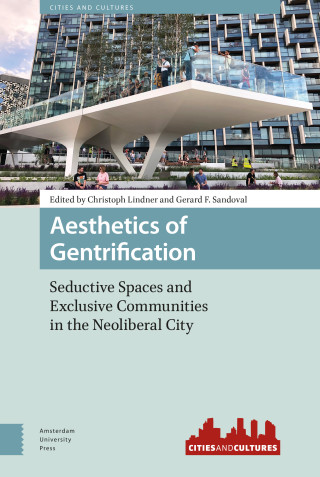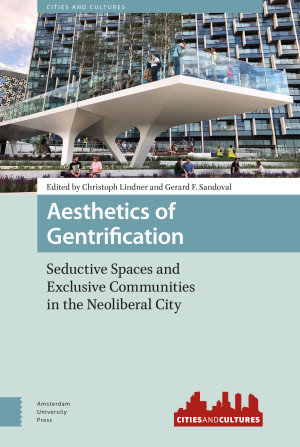"Aesthetics concerns in urban design often belong to one of two camps. In the first camp, urban aesthetics is reduced to an endorsement of traditional architectural styles and human-scale urban types. [...] In the second camp, urban aesthetics is regarded as a superficial concern, based on opposition between aesthetics and function, between surface and structure. [...] Aesthetics of Gentrification, edited by Christoph Lindner and Gerald F. Sandoval, is a vital source of urban designers who do not belong in either of the two camps and recognize that both approaches end up solidifying existing socio-economic arrangements and racialized imbalances of power. [...] Aesthetics of Gentrification contributes to a different, to a radical understanding of urban aesthetics. In thirteen substantive chapters, a range of superb scholars examine relationships between aesthetics and gentrification from global and transnational perspectives."
- Günter Gassner, Journal of Urban Design (2022)
"The book brilliantly demonstrates that a focus on aesthetics should be at the core of our understanding of gentrification and displacement forces."
- Anastasia Loukaitou-Sideris, Distinguished Professor of Urban Planning, UCLA
"In this powerful collection of essays, editors Christoph Lindner and Gerard Sandoval identify the seduction of gentrification's aesthetics, its power to exclude, and the activism that can change its course."
- Karen Chapple, Professor of City and Regional Planning, University of California, Berkeley
"From the visual politics of street art in Paris, through the location and design of office parks in California, to the gendered spaces created by CCTV cameras in India, this fascinating collection of essays travels through some of the newest spaces and practices of gentrification."
- Alison Young, Francine V. McNiff Professor of Criminology, University of Melbourne
"The Aesthetics of Gentrification offers genuinely fresh thinking on a pervasive urban phenomenon, bringing together a diverse and distinctive collection of scholarly voices that push us to think differently about the representation, politics, strategies, and silences of contemporary urban change."
- David Madden, Co-Director of the Cities Programme, London School of Economics and Political Science





